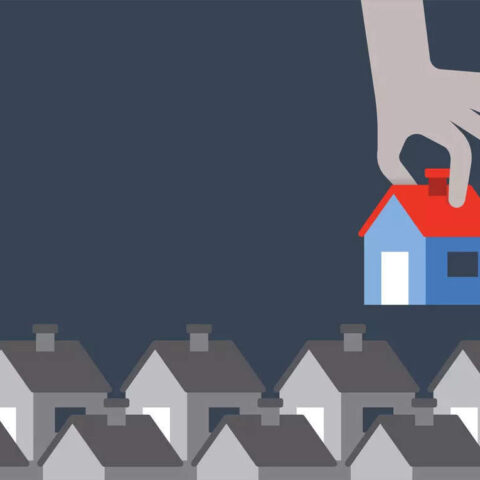A new year is a blank slate for starting fresh with intentions on how to move about the world, and also on how to prioritize within your immediate surroundings. Organizing your life might be at the top of your list right now, but don’t overlook the effects that refreshing and rearranging your interiors can have on your lifestyle too. Optimizing the spaces where you recharge to be more calming, welcoming, and restful can not only boost your mood, but also sow the seeds for improved well-being overall.
Silvana Vergara, cofounder and principal at Studio Tove in New York City, sees wellness in interior design and architecture as more of a necessity than merely a trend. “Simple yet effective strategies, such as maximizing natural light, incorporating plants for air purification, and choosing furniture made from sustainable and non-toxic materials can make a substantial difference,” she emphasizes. “This approach where design harmoniously intertwines with health ensures that every element, from walls to furnishings, fosters a positive and nurturing environment.”
Whether you’re building a dedicated wellness room or seeking tips for how to enhance the flow and energy of an existing space, here are AD PRO Directory designer-approved ideas on how to elevate your home in a way that’s holistically and aesthetically pleasing.
Embrace the Natural World
Tanya Ryno, owner of Iron House Design in New Jersey, specializes in creating luxury home gyms and wellness spaces for clients around the country. Recently, she’s noticed a growing design trend of the “deliberate blurring of boundaries between indoor and outdoor spaces to enhance overall well-being.” In cases like these, Ryno suggests “large, or even oversized, sliding glass doors that not only allow for physical movement between the two spaces but also ensure a visual and emotional connection with the outdoors, even when inside.” That strong connection to light, fresh air, and nature not only results in a space that’s aesthetically pleasing, she says, but also one that’s conducive to physical health and mental well-being.
Using natural materials can also foster an affinity to the outdoor world. Laurie Molton, principal designer and founder of Lolo Interiors in California, uses the example of an environment that features slabs of limestone “in a way that is reminiscent of carving the entire space from the earth” or textured materials and objects that come from nature. “Incorporating a touch of patina and organic materials that age over time; or handmade pieces such as pottery, a woven basket, a vintage wood stool, or a vintage rug will layer the space in a meaningful way that makes you feel inspired and grounded,” Molton says.
Source Wisely
Another way to feel better in your home is to prioritize non-toxic materials, which often have the benefit of being better for the environment too. Vergara suggests embracing natural fibers, low-VOC paints, sustainable woods, and natural stone or recycled-glass countertops to enhance a home’s indoor air quality and sustainability. Sarah Solis, founder and principal of California’s Sarah Solis Design Studio, adds that plaster and clay are two materials she prefers for natural wall finishes because of the environmental benefits.









